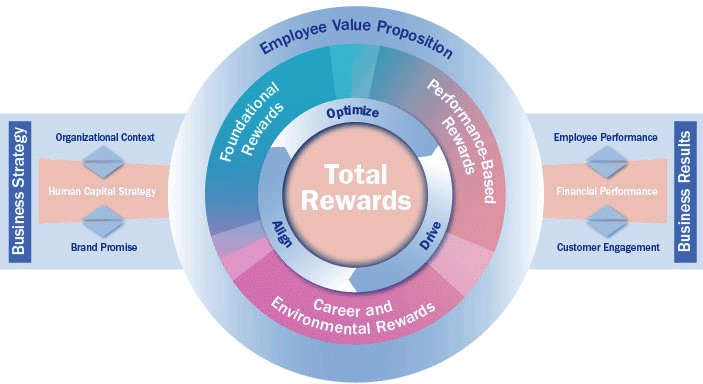Compensation & Benefits
A compensation philosophy is developed to guide the design and complexity of your compensation programs; this is done by identifying your goals and objectives, considering your competitiveness in attracting and retaining employees, your emphasis on internal and/or external equity, and whether performance is tied to pay increases. A consistent philosophy provides a strong foundation for both the organization and the employee. Without a philosophy, leaders often find themselves unsure of what to offer as a starting salary for a new employee.

Companies want to attract, retain and motivate brains to meet objectives. Today Humans are regarded as one of every company’s assets so they need to be efficiently and effectively managed.
Total reward for an employee is majorly divided into three and they are:
Direct financial compensation consisting of pay received in the form of wages, salaries, bonuses and commissions provided at regular and consistent intervals
Indirect financial compensation including all financial rewards that are not included in direct compensation and understood to form part of the social contract between the employer and employee such as benefits, leaves, retirement plans, education, and employee services
Non-financial compensation referring to topics such as career development and advancement opportunities, opportunities for recognition, as well as work environment and conditions
Understanding what balance you want to achieve between direct and indirect financial compensation is critical in developing your overall total compensation approach.


